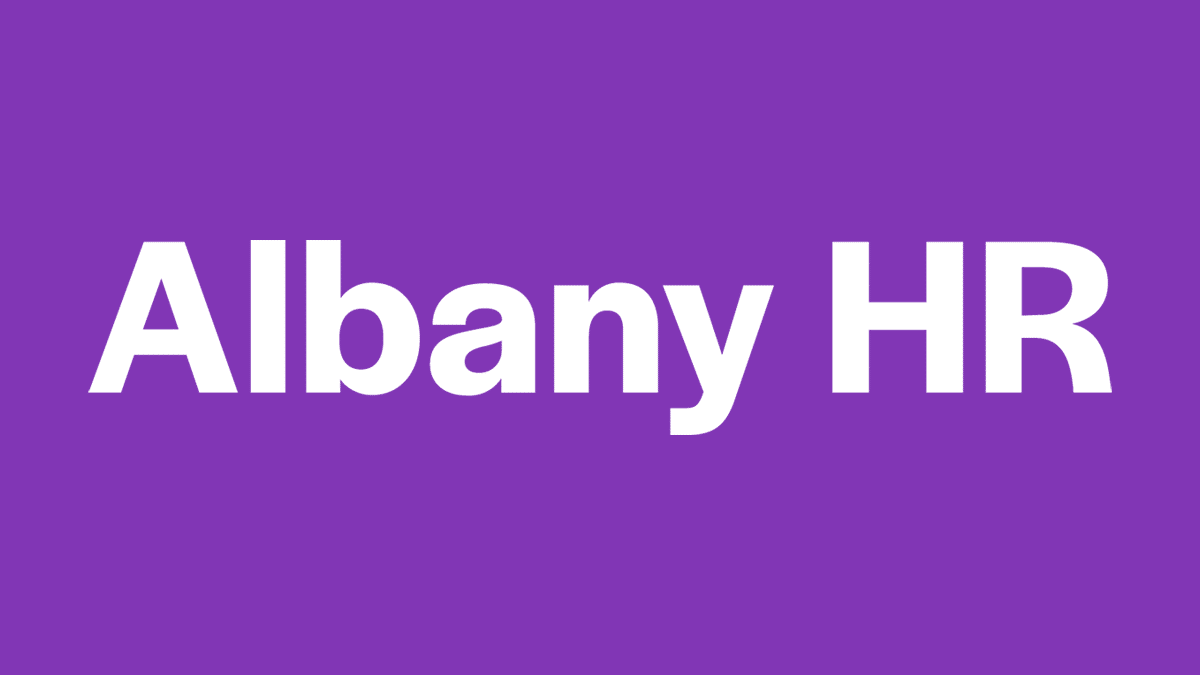Inside this edition:
Why you should have a company handbook and how we can help
Silence is not golden: Over half of UK job seekers don’t hear back
Flexible Working – how can you keep it on your terms?
Why you should have a company handbook and how we can help
Think of a handbook as your company’s go-to manual – it is the cornerstone of your workplace resources, containing all the vital information and guiding principles of your business in one central resource.
Here are 3 reasons as to why you should have one for your business.
Reason 1: Legal compliance and risk mitigation
Policies outline how you expect employees to behave, and your handbook is where all your policies come together into a single document. When there is an issue, you can fall back on your policies and handbook to evidence your expectations and to protect you.
Reason 2: Smooth operations
Think of your handbook as the nucleus of your company’s operations. It should contain everything your company needs to keep running smoothly and to avoid disagreements with employees about certain matters.
Reason 3: Culture and values
While it can be tempting to download a generic template, it’s unlikely to be the right fit or legally compliant. Instead, partnering with an HR Consultant will help you create a personal handbook that meets your distinct needs and complies with legal requirements.
Here’s 3 reasons why you should get an HR Consultant to help you:
Tailored Solution:
An HR Consultant will create a bespoke handbook that reflects the diverse needs of your business and teams, capturing your unique voice. Relying on a template that doesn’t align with your organisation’s values, such as supporting an employee experiencing menopause symptoms, can lead to complications.
Expert Guidance:
By engaging an HR consultant, you tap into their vast knowledge and expertise to develop a comprehensive, legally compliant handbook, which reflects current trends.
Ongoing Review:
An HR Consultant can regularly review your handbook to ensure it remains up-to-date, providing continuous protection. They will ensure it grows with your business, embodying your culture and values, and is always exceptional!
Our latest guide explores everything you need to know about a company handbook.
Get your FREE copy here.
Will HR teams using AI create unease and distrust?

According to new research by SurveyMonkey, over half (54%) of employees are uncomfortable with their HR team using AI. A further 39% of workers also lacked trust in HR departments that use the automated technology.
For some HR professionals, AI is still very much uncharted territory, with 69% of HR teams still yet to implement the new technology. However, there is a growing concern that employees will feel “uneasy or distrustful” of AI and how it integrates into the HR world, seeing it as a threat to job security. For instance, some employees may have concerns about the impact on fairness, data safety, and security risks.
To address these concerns, HR professionals need to foster trust for AI by implementing clear policy frameworks on ethics and data protection, educating employees about AI’s benefits and limitations, and ensuring human judgement is involved in key decisions, rather than relying solely on automation.
Silence is not golden: Over half of UK job seekers don’t hear back
Job hunting and applying for a new role can be frustrating and demoralising. A recent study by global matching and hiring platform, Indeed, reveals that a staggering 55% of job applications in the UK go completely unanswered, leaving applicants in limbo and facing a frustrating reality.
Despite 916,000 job vacancies across the UK being reported by the Office for National Statistics, the hiring process remains inefficient. The survey, with insights from 1,000 working individuals and 1,000 hiring professionals in the UK, reveals inefficiencies that affect both jobseekers and businesses, leading to prolonged vacancies and misaligned roles.
The survey found that when a potential employee is unresponsive, it greatly impacts an applicant’s confidence, with 86% of respondents preferring a clear rejection rather than total silence. Hiring professionals also suffer, with 61% experiencing wasted time due to inefficient or lengthy hiring processes, or discovering candidates are unsuitable due to avoidable factors, such as location or lack of interest. Indeed plans to transform and personalise the hiring process using AI-powered tools, a new mobile app and other tech innovations.
Late Night Emails: Gen Z’s Bedtime Work Reading
A new survey commissioned by DUSK, a luxury bedding and furniture company, has uncovered a worrying trend; almost a third of young adults (aged 18 to 34) are taking work to bed and checking their emails. The study, encompassing 2,000 UK adults, also found that 19% even respond to them. Worryingly, 82% of 18 to 24-year-olds and 77% of 25 to 34-year-olds, are phone scrolling from the comfort of their bed, which also negatively impacts their sleep.
Sian Guest, DUSK’s Head of Brand, emphasises the blurred lines between work and relaxation, and the negative impact of these habits on wellbeing, including poor sleep quality linked to reduced productivity, concentration, motivation and increased stress levels.
In recent years, there have been discussions about the “right to disconnect” with Trade Unions and think tanks, advocating for legislation that would restrict employers from contacting employees outside of working hours, to address growing mental health concerns at work. If elected, Labour proposes to introduce “right to switch off” legislation, similar to measures seen in countries such as France and Italy. These measures aim to promote a healthier work-life balance, set behaviour expectations, and reduce the risk of burnout.
Flexible Working – how can you keep it on your terms?

The Flexible Working (Amendment)Regulations came into effect on 6 April 2024, bringing significant updates to the UK’s flexible working regulations.
Notable changes included granting employees the right to make a flexible working request from day one of their employment and a more streamlined process, with employees no longer needing to justify how their flexible working request might impact the business or their work.
With a greater say on when, where and how people can work, employers could now expect a surge in requests for flexible working arrangements.
Research conducted by the CIPD indicates that individuals who work flexibly are more committed, have a higher level of job satisfaction, and are healthier and less stressed.
From an employer’s standpoint, adopting a flexible approach can lead to increased productivity, reduced absence and enhanced talent strategies, by appealing to a more diverse pool of candidates.
Yet, as a business owner, how can you create a flexible working culture that supports good work-life balance and meets your own needs?
Here are some strategies to help you strike a harmonious balance and ensure that flexible working ‘works’ for you:
- Develop a flexible working policy that clearly communicates your expectations as a business, while empowering your employees to work in a way that gets the job done and suits their personal lives.
- Consider implementing core hours for availability. This can provide structure for meetings, team updates and other core activities, while allowing your employees flexibility to squeeze in a pre-work yoga session or manage caring responsibilities, with time for a quick cuppa before logging on.
- Be transparent from the outset about the level of flexibility your business can offer, including in job advertisements and on your company website. This can help to manage expectations and attract great candidates who align with your approach.
- Prioritise building a culture of trust, autonomy and support, where value is placed on output and results rather than hours worked or location. This encourages a healthy balance between productivity and well-being.
- Regularly review your flexible working policies and initiatives, based on feedback and pulse survey results, performance data and the evolving needs of your business. This will ensure your offering is fit for purpose and that everything is running nice and smoothly.
- Lastly, embrace the shift in workplace dynamics and the change in attitudes towards flexible working, while keeping a close eye on what works best for your business and objectives.
Implementing these strategies could lead to numerous business benefits, such as increased engagement, better retention and a diverse and inclusive organisation, and could be a win-win!
Q & A
I run a business and employ members of my family. Do they need employment contracts?
Yes! Anyone legally classed as an employee has the right to a written statement of employment particulars or an employment contract. As a business owner you can hire who you like, including family, but providing a contract will ensure consistency and fairness, and could provide you with protection if a dispute arises, rather than simply relying on good faith or loyalty.
Can I employ someone on an actual basis if they are under 16?
Children between the ages of 13-16 can take on ‘light work if it doesn’t affect their health and safety or interfere with their education. If you want to do this, you normally need to have a permit from the local council’s education department or education welfare service. There are also several restrictions on where, when and how they can work, depending on their age.
My employee hasn’t signed their updated contract of employment – what now?
If you have proposed changes to the agreed terms and conditions, you both must agree to the changes. Although you can’t force your employee to sign it, their failure to do so might suggest the non-acceptance of the implied terms. A proactive and supportive approach would be to have a conversation with them; try to understand their reasons for not signing and address any concerns or uncertainties they may have.

